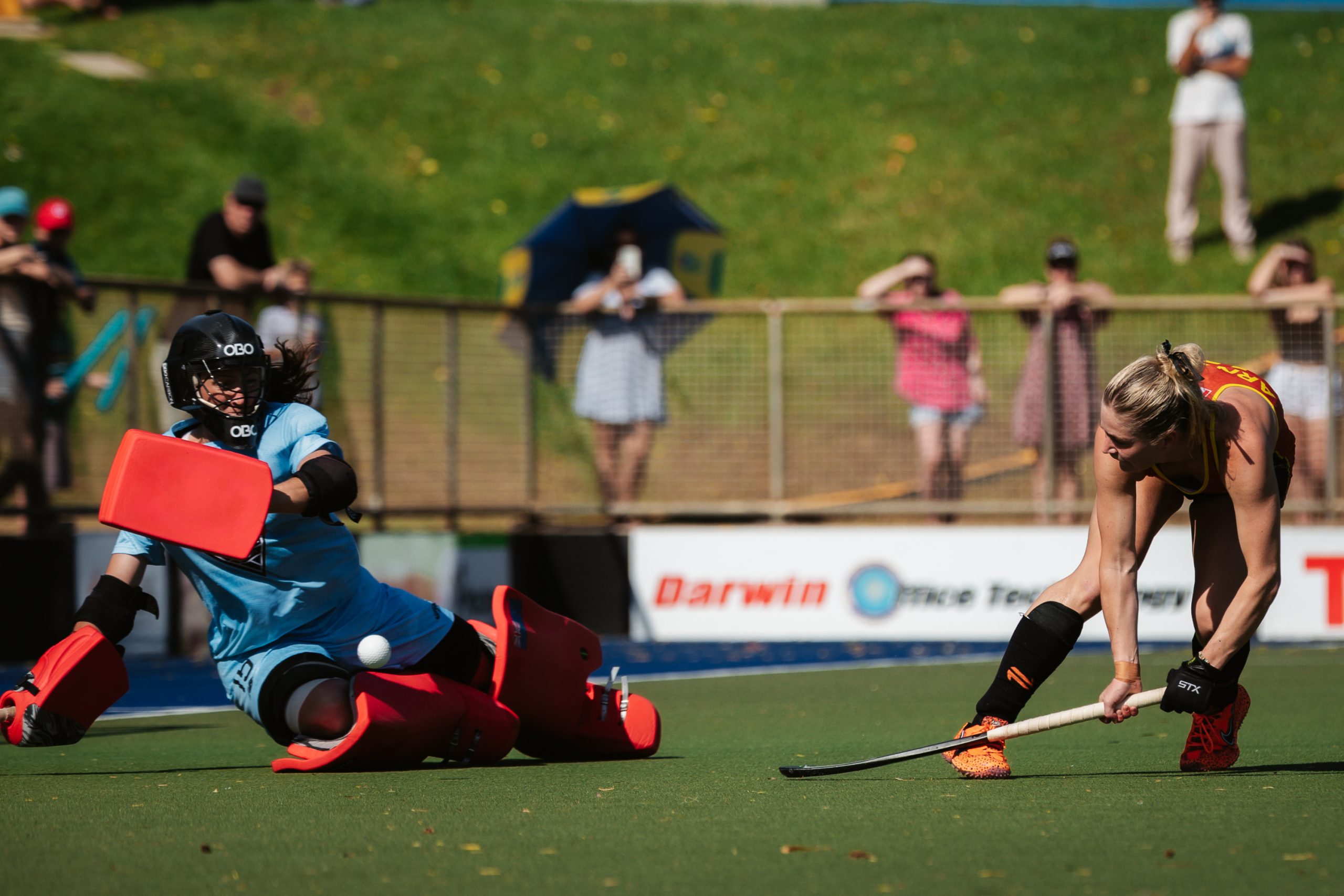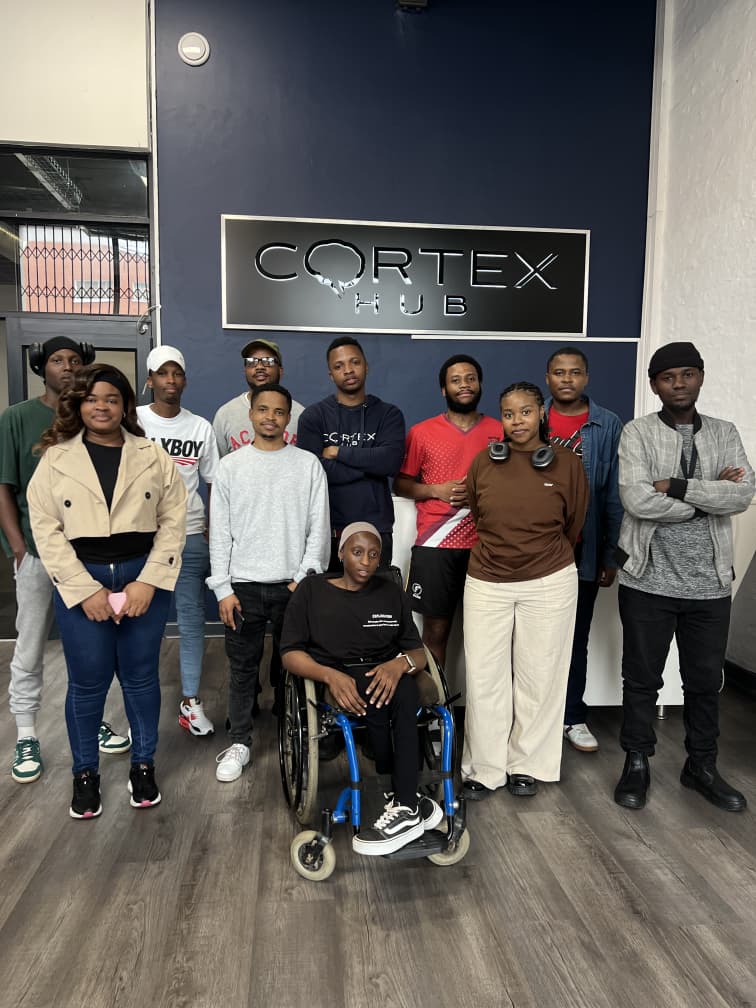By Suzanne McFadden
Copyright newsroom

Grace O’Hanlon glanced down at her arm, bent shockingly into the shape of a Z, and thought, “Well, this sucks”.
That moment last October was another cruel blow in what had already been one of the toughest years of the Black Sticks goalkeeper’s long, storied hockey career — when the sport she loved seemed to give back only frustration and pain.
She’d had to watch the Paris Olympics from the opposite side of the world when the Black Sticks failed to qualify, leaving her gutted. “I felt that failure really deeply,” the 33-year-old says. “It was extremely challenging, and I struggled to come back.”
Then came the broken arm in the first training for the Premier Hockey League season. “It was horrible,” O’Hanlon recalls. “I thought, ‘I’m too old to have a broken arm’. I looked like a schoolkid with my arm in a cast. It made me so miserable – that something you love so much can hurt you.
“Being away from hockey made me even more heartbroken. But it also made me realise the moments that bring you joy, the ones you play for, are just so worth it.”
Less than a year on from that shattering setback, O’Hanlon has had one of those real moments of joy. In Darwin last week, she starred in the goalmouth, repelling wave after wave of Australian attack to help New Zealand secure a 2-1 Oceania Cup victory and direct entry into next year’s World Cup.
Twice she walked away with Player of the Match – saving 25 shots on goal across three tests – even though she was quietly nursing a freshly-torn hamstring.
“I’m just feeling so elated. It’s such a wonderful feeling – as a team and personally – that you can’t get anywhere else in the world,” says O’Hanlon, back home in the Auckland suburb of Onehunga.
Her match-winning saves in the opening test, followed by a crucial block in the sudden-death penalty shoot-out to decide the series, only cemented her reputation as one of the most athletic goalkeepers in world hockey.
“Don’t get me wrong, I was very proud of how I performed,” she says. “But there’s so much luck involved in hockey. Sometimes the chips fall in your favour, and finally we were in a series where a few things started to come our way.”
Yet things didn’t all go O’Hanlon’s way. Six days before the first game against the Hockeyroos, the most experienced Black Stick in the side pinged her hamstring, after being a little “overzealous” in training.
“So I didn’t train the whole way up to that game – I couldn’t walk for the first couple of days – and it took ages to get a scan,” she says.
“So it was a bit stressful. We weighed up the risk and reward – and we chose to take the risk, because if we qualified for the World Cup, I’d have heaps of time off for the rest of the year to mend.
“I was all strapped up, and I wasn’t at my most confident going into it, but I played to the occasion because we had to win that one.”
Captain Olivia Shannon’s reverse-stick rocket in the 49th minute sealed the 1-0 victory, but it was O’Hanlon’s fearless blocking of a relentless Australian attack that truly stood out.
“A bit of adrenalin helped,” she laughs. “I knew there would be some pain, but I would do it again a million times over.
“I don’t know if you’ve seen the pictures, but I was just so fizzed after that game, it was like we’d won the World Cup. To keep a clean sheet against the Australians – it was just massive relief.”
But O’Hanlon doesn’t want all the credit for keeping the world No.5 Hockeyroos scoreless. She praises the Black Sticks defence in front of her for making her job simpler.
“Full credit to our girls, there were some tough match-ups out there. We’d have a 19-year-old with 10 caps marking a 150-game veteran who’s been to three Olympics. So to keep them to zero goals was wildly impressive,” she says.
“We’ve created a man-to-man type of defence, which isn’t everyone’s cup of tea. In international hockey, most teams are doing zonal marking.”
As expected, the Hockeyroos came out fighting in the second test, and finally pierced the Black Sticks defence with a penalty corner deflection, winning 1-0. “We survived the second game,” says O’Hanlon, who was still strong in front of goal, along with young defender Riana Pho.
The decider came down to a thrilling penalty shoot-out, after Jessie Anderson’s corner deflection levelled the scores with five minutes left on the clock. The Black Sticks played out the match content with a draw – confident they could win the shootout. O’Hanlon saved Australia’s first attempt by Alice Arnott, and the Black Sticks converted all five of theirs (with Shannon scoring two critical strokes).
“Since we didn’t qualify for Paris, we’ve been struggling a bit with our confidence. But these girls were like ‘We’re going to back ourselves to beat one of the best teams in the world in a sudden-death shoot-out for World Cup qualification’,” she says.
“Every single one of our girls got up and did the job immediately – there was no stuffing around. They knew the [Australian keeper] Aleisha Power. And because we practise [penalty shoot-outs] endlessly – which is horrible at training for me – we were really well prepared for that moment.”
O’Hanlon first caught the eye of Kiwi hockey fans in the 2018 Commonwealth Games semifinal, when she was called off the bench to save four of England’s five penalty shoot-out attempts, sending the Black Sticks into the final against Australia – and on to win gold.
Born in Queensland, O’Hanlon crossed the Tasman in 2016 to join the Black Sticks – her dad, Greg, was born in west Auckland – after realising there was no clear path past the more senior goalkeepers in the Hockeyroos.
The Tokyo Olympian has now played over 100 caps for the Black Sticks – “120-ish I think” – and is the only centurion in the current squad.
“One of the Australian spectators said to me after we finished, they said, ‘Oh, you guys have been out in the wilderness for a couple of years, haven’t you? It’s good to see you back’. And that’s sort of how it’s felt,” she says.
Back in 2023, Hockey NZ decided to withdraw the Black Sticks from the Pro League – the annual global league for the top nations – to focus on qualifying for the Paris Olympics. Since missing out on Paris, their government funding was slashed by $1.4m.
In March, the Black Sticks won the Nation’s Cup in Chile – automatically qualifying for the Pro League in December – but again turning down their spot because of the expensive, travel-heavy format of the league. But the team will need to play top opposition before the World Cup, in Belgium and the Netherlands, next August. (The Black Sticks men had already qualified before the Oceania Cup, which they lost 3-0).
“We’ve been trying to get creative and work with other nations who are in the same boat, like the United States and India,” says O’Hanlon. “But the Pro League is ultimately where you get to play the best quality teams consistently through the year. For us to play the global game, we need more time together and more time on the pitch with really high-class opposition.”
Under head coach Phil Burroughs, the team are building momentum and a “phenomenal culture”, O’Hanlon says.
“We’re now training all over the country in our satellite hubs, so more people feel involved and connected to the team, and part of the journey. I think that’s super important… you don’t get sick of each other because you’re not living in each other’s pockets,” she says.
“We’ve simplified our game plan to be so clear so anyone who walks into this team from our broader squad of 30 to 35 girls knows exactly what is expected of them. Our squad is relatively young and inexperienced but with heaps of talent and promise – we just need more exposure on the international stage.”
And as long as her body holds together, she intends to keep playing at the highest level, knowing she has experience and leadership – and high expectations – to bring to the young players in the squad.
“I love hockey so much, and not just hockey on the pitch. It’s every single minute. It’s 9.30pm training in the rain on the dirtiest Monday night after you’ve just worked all day,” says O’Hanlon, who works as a sustainable investment analyst for Milford Asset Management.
“You’re there with these like-minded people, and you go through horrible struggles and incredible triumphs, and you do that together.
“I have so much passion for our team, and the feeling in the group right now is great, and winning helps. We still have miles to go, but at least we can do that now with the confidence we’re going to be at the World Cup.”



